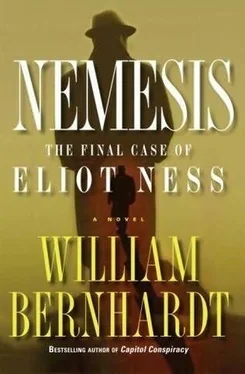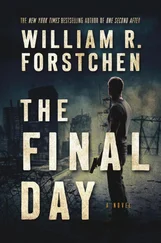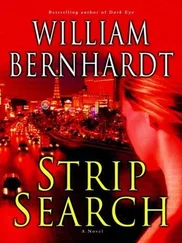Marie had offered on more than one occasion to go to work. Her mother, predictably, was appalled by the idea. But Mother, she insisted, a lot of the girls are working these days. The world has changed. Not enough for her mother, though. Marie saw nothing wrong with working a few hours a week in a shop, but her mother wouldn’t hear of it. You’ll be tarnished for life, she said. Apparently she equated the shop girl with another working girl of a more intimate nature. It was crazy. Like it or not, the world had changed, and you didn’t have to be Susan B. Anthony to realize there were worse things than working in a shop.
It’s not as if she were a suffragette, not by a long shot. She had read about those women over in England, arrested because they had the audacity to seek the vote, force-fed and sometimes killed in the process. They’d done their job-women in England had finally gotten the vote, a year before American women did. So in four years, Marie would be able to vote-but she still couldn’t work in a shop. It was absurd, simply absurd. She was pretty enough to get a job at a time when a lot of able-bodied men were going hungry. What could possibly be wrong with that?
She crossed Denison, then the Baltimore & Ohio railroad track, making her way toward Brooklyn. She couldn’t wait to show the new dress to Millie. It would make her insane, which of course was the whole pleasure of the thing. This dress was the cat’s meow; she looked so good it in you could eat her with a fork. If she did think so herself.
Marie saw some charcoal kindling on the ground and gave it a wide berth. Hobo campfires. She knew a lot of tramps and out-of-work transients camped in this field at night. Maybe she should’ve gone another way, but this was the quickest route to Millie’s place, and she was sure she would be all right as long as the sun was out and she didn’t do anything stupid. Still, it might not hurt to walk a little faster. So she did.
Until something stopped her dead in her tracks.
What on earth was that hideous smell?
The stench was so strong and pervasive she felt herself getting woozy, like she’d inhaled a bad perfume at Woolworth’s, only a thousand times worse.
It was coming from the brush to her right, just off the path.
Skunk? she wondered. Because she certainly didn’t want to get to Millie’s smelling of skunk.
So why did she keep walking closer?
The odor grew more intense with every step. She felt her head spinning and her knees getting a little unsteady. Perhaps she should not have worn heels.
She stepped into the brush and the stink was so strong it slammed against her head like a brick wall. What on earth could it be?
She pushed aside a tall bush and that was when she saw it, so black and gray that at first she did not recognize it for what it was. A human body. Or the remains of one.
She covered her mouth with her hand. Why had it taken her so long to realize this was a corpse?
The answer came quickly: Because in addition to being black and leathery, it was missing one of the most readily identifiable aspects of a human body. The head.
Marie made her way out of the brush just as quickly as her heels would allow her. Maybe she didn’t need to see Millie after all, not right away. Maybe she needed to get out of here, fast, before she ran into whoever-or whatever-had done this. Could it be that monster she had read about in the News? That Torso Killer?
A chill shot down her spine. Her pace quickened. She broke both heels before she made it to police headquarters, but that was the absolute last thing on her mind.
Chamberlin ran into Ness ’s office.
“Here are the papers, sir. All the major dailies.” Ness glanced up from his report. “And?” Chamberlin sighed. “You’re going to be disappointed.” “What?” Ness snatched the top paper from the stack. It was The Courier. Above the fold, where he had expected to see one of the many photographs taken by reporters at The Harvard Club raid, there was instead a line drawing of a hideous ghoulish creature, a slavering bald-headed monster with clawlike fingernails and a leering expression. The headline read: TORSO KILLER STRIKES AGAIN. The smaller subheadline read: WHO WILL BE THE NEXT VICTIM? “Blast!” Ness said, throwing the paper down. “Of all the luck.” “It gets worse, sir.” He opened the paper to the op-ed page, then pointed to the top letter to the editor. “It’s from Congressman Sweeney, the man who questioned you at the Cleveland Advertising Club meeting. Basically, he’s demanding that you stop all other-he calls them, ‘less important activities’-and start working the torso case.”
“What does he expect me to do?”
“Apparently he expects you to catch the killer. He’s pretty hot about it.”
“It’s absurd. I’m not a homicide detective.”
“He says, ‘Surely the man who caught Capone will have no trouble catching one sadistic killer.’ ”
“But-that’s not my job. It’s not what I was hired to do.”
“I don’t think he cares, sir. And if I may say so-I don’t think anyone else does, either. The whole town’s in a panic. Scared to death. They won’t feel safe until this man is caught.”
“Swell.” Ness wadded up the paper and threw it into the trash. “Are the reporters here yet?”
“Sir…” Ness could tell Chamberlin didn’t want to say whatever was coming next. “Do you really think that’s wise? Given what’s in the paper?”
“I’ve got no choice. I can’t start my Boys Clubs without funding from the city council. And I won’t get that without public support.”
“I’m just thinking maybe the time isn’t right…”
“You must be kidding. Juvenile crime is out of control in this town.”
“That’s not what I meant.”
“These reporters aren’t idiots. At least not all of them. They’ll come around. Once I explain how important this is. And they’ll take the message to the people.”
“I don’t know…”
“I have a good track record, don’t I?”
“Of course you do. But this-this is something totally different. You’ve never been up against anything like this before.”
Ness rose from his desk and grabbed his suit jacket. “Surely I’ve earned a vote of confidence on my plan to combat juvenile crime.”
“I’m just concerned that-”
“They’ll come around, Bob. You’ll see. I’ve handled the press before and I’ll handle them again.” He grabbed his hat and headed out the door. “I know people are upset about the murders. But that doesn’t mean they can’t see sense.”
Ness hated flashbulbs. Those reporters didn’t mind getting right up in your face with them. They flashed at the least opportune, least flattering moments, and left him literally blinded for a good ten or fifteen seconds. He understood they were just doing their job, and he sometimes liked the result. A flattering photo on the front page of tomorrow’s papers might guarantee the funding he needed. But it was still annoying. Broke his concentration. Made him squint. His eyes were already a little smaller than he might like, a little too beady. He didn’t want to look untrustworthy.
“Thank you for coming out today,” Ness said to the throng of reporters and photographers gathered on the steps of Cleveland City Hall. He tried to amplify his usual soft voice; he needed to sound firm and confident. In control. Funny how he always felt insecure when he gave a speech, but felt entirely comfortable giving a press conference. “I’m here to formally present my plan to deal with the juvenile crime problem that has plagued this city for many years. My problem has been that I couldn’t figure out why Cleveland should have so much more juvenile crime than other cities of similar size. So I did what I always do when I’m trying to tackle a big problem. I investigated.”
Читать дальше










